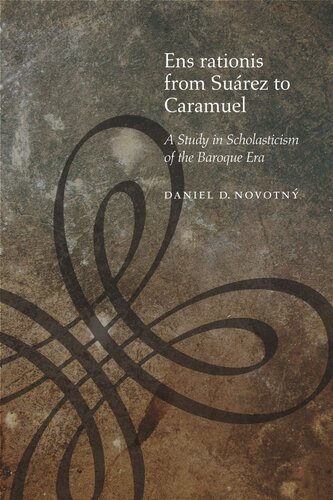

Most ebook files are in PDF format, so you can easily read them using various software such as Foxit Reader or directly on the Google Chrome browser.
Some ebook files are released by publishers in other formats such as .awz, .mobi, .epub, .fb2, etc. You may need to install specific software to read these formats on mobile/PC, such as Calibre.
Please read the tutorial at this link: https://ebookbell.com/faq
We offer FREE conversion to the popular formats you request; however, this may take some time. Therefore, right after payment, please email us, and we will try to provide the service as quickly as possible.
For some exceptional file formats or broken links (if any), please refrain from opening any disputes. Instead, email us first, and we will try to assist within a maximum of 6 hours.
EbookBell Team

4.8
84 reviewsThe influence of the Spanish Jesuit Francisco Suárez (1548–1617) on 17th-century philosophy, theology, and law can hardly be underestimated. In this groundbreaking book, Daniel D. Novotný explores one of the most controversial topics of Suárez’s philosophy: “beings of reason.” Beings of reason are impossible intentional objects, such as blindness and square-circle. The first part of this book is structured around a close reading of Suárez’s main text on the subject, namely Disputation 54. The second part centers on texts on this topic by other outstanding philosophers of the time, such as the Spanish Jesuit Pedro Hurtado de Mendoza (1578–1641), the Italian Franciscan Bartolomeo Mastri (1602–73), and the Spanish-Bohemian-Luxembourgian polymath Juan Caramuel de Lobkowitz (1606–82). The book should be of interest not just to those concerned with beings of reason but also for all those with a broader interest in the history of the period. It is written in a clear style that will make it appealing both to historians of philosophy and to anyone interested in applying analytical tools to the history of philosophy.